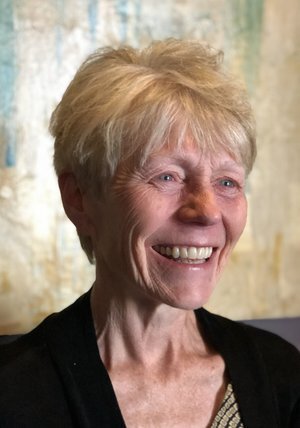Dr. Eileen Poeter and The Groundwater Project, an International Collaboration
Dr. Eileen Poeter, Professor Emeritus, Colorado School of Mines
When Dr. Poeter isn’t working with the LWS team on a modeling project she is volunteering for the not-for-profit Groundwater Project. Her activities include serving on the board of directors, authoring Groundwater Project books, coordinating participants, and editing books of other Groundwater Project authors.
The Groundwater Project is the inspiration of Dr. John Cherry who won the 2020 Stockholm Water Prize. His vision for the Project grew because groundwater is the source of drinking water for nearly half of the global population and supplies much of the world's irrigation water, but groundwater is complex, out-of-sight and mostly out-of-mind.
The goal of the Project is to publish educational materials, online and free-of-charge, to provide synthesized information on groundwater. The Project aims to provide explanations from experts who are so advanced in their grasp of complex topics that they are able to convey ideas in an impressively simple form. The first new books will be released in September 2020. To date, the only book on the web site is the 1979 book “Groundwater” by Freeze and Cherry. The publisher released the rights to Dr. Cherry, then the Project promptly posted the book to the web and had it translated into Portuguese within 4 months. The first version of each “coming soon” book on the website is in English, followed soon after by translations to other languages. Many chapters are layered to support understanding at both introductory and advanced levels with clickable links to equation derivations, worked problems, public domain educational reports, videos of lab demonstrations, field methods, and lectures. Although encyclopedic in scope, the Groundwater Project is focused on knowledge synthesis to achieve understanding, underpin classroom teaching and facilitate self-education.
Groundwater flowing along longer, slower and deeper paths spends more time in the subsurface, so it has a longer residence time when it reaches the stream. Water enters the groundwater system at many locations over a wide area, but the flow paths converge to discharge on a smaller area such that the water discharging to a stream has a wide range of residence times. (Poeter et al., 2020)
The Groundwater Project was initiated in 2017 to cover nearly all aspects of groundwater relevant to both developed and developing countries. As of today, more than 20 institutions are partnering with the Groundwater Project and many others are in the process of developing partnerships. Currently, more than 200 volunteer scientists and engineers from 23 countries on six continents are involved in the preparation of books while the search for more participants continues. Over 500 books, organized in 15 knowledge realms that are divided into topical domains, will be prepared over the next few years. With the help of hundreds of volunteers, the Groundwater Project contributes to a better world, by ensuring that society achieves the exceedingly difficult task of scientifically-informed, sustainable management and protection of groundwater.


